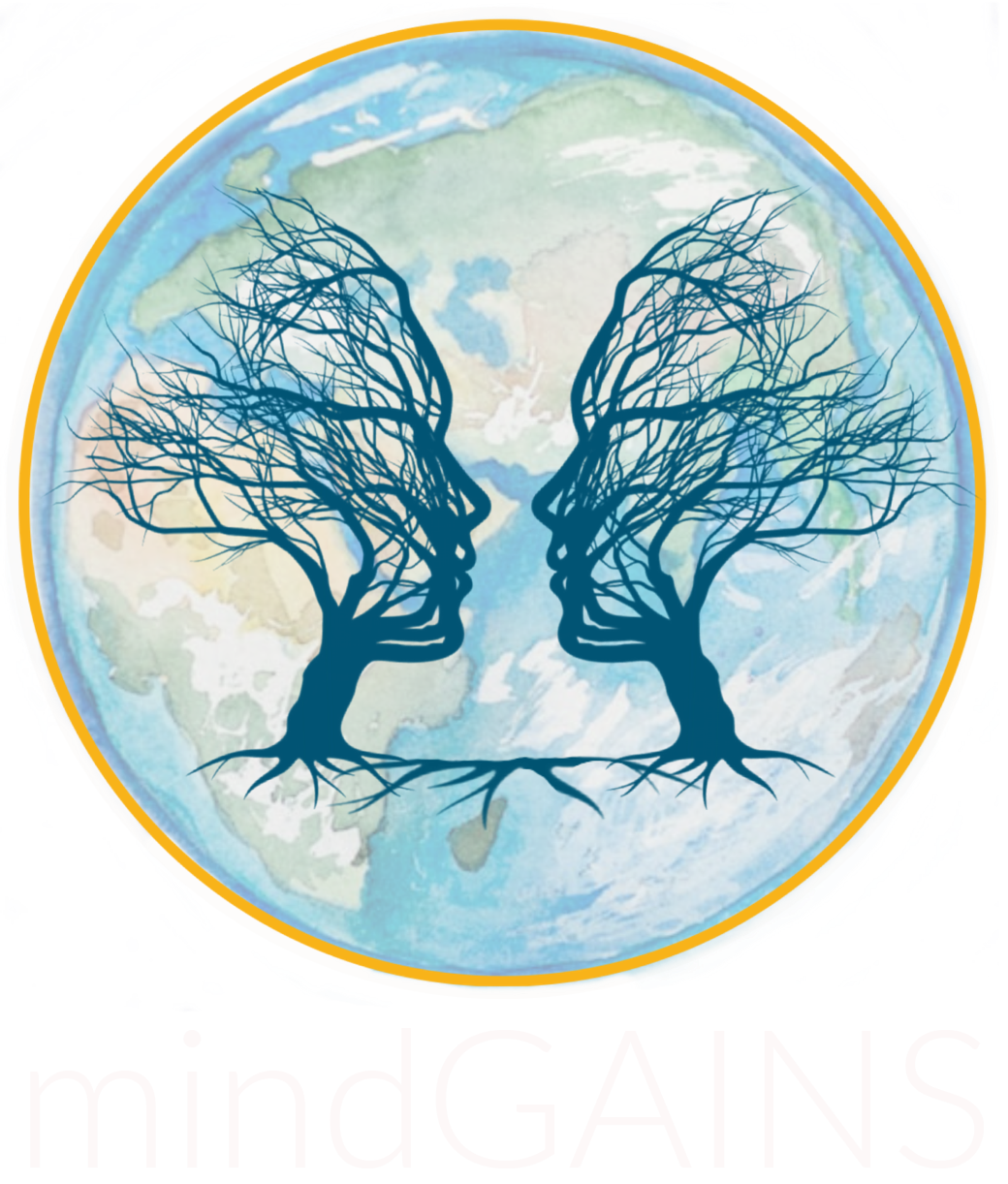As in other relational realms, IPNB brings the brain and nervous system into mind in ways that have pragmatic translations and positive impact. In other words, the leaders who understand the IPNB perspective, gain a whole set of innovative possibilities for how to develop their mind skills and communication skills, and provide the same opportunities to their teams, co-workers, corporate cultures, and beyond.
IPNB profoundly changed the fields of psychotherapy and parenting, and continues to ripple through education, healthcare, and leadership with increasing impact. Way back in 2007, GAINS published its first of a number of articles about organizations and leaders (see resource list below.) Now, in April 2019, the Annual IPNB Conference features a leadership-focused pre-conference.
Awareness-Based Systems Leadership: Cultivating Generative Social Fields and Systems Change
This special day brings leadership experts and IPNB experts together including:
- Peter Senge, one of the original folks to bring systems theory to organizations through his 1990 classic The Fifth Discipline and his concept of the learning organization;
- Innovator Otto Scharmer, whose Theory U and Presencing Institute bring a mindful community action plan to profound change;
- Mette Miriam Boell, who works with Peter Senge and focuses on bringing transformational change to educational organizations;
- Diana Chapman Walsh, whose experience includes decades of high-level leadership in education and on boards of large corporations; and
- Dan Siegel, one of the founders of IPNB (and member of GAINS Advisory Board) who consults with and presents to leaders around the world and continues to influence multiple disciplines through his writing and teachings.
An excerpt from the pre-conference description gives you a hint of the day’s incredible value:
All the presenters bring experience with “the study and cultivation of “generative social fields” in which families, schools, businesses, governments, and the larger society in which we live can create relational interactions that support the nurturance of compassion, connection, curiosity and well-being….Come join us for a day of deep experiential learning intended for anyone interested in how to cultivate the individual development and pervasive leadership capacities to facilitate systems change in local and global ways that will help promote a healthier world.” (Bold added)
REGISTER NOW (space is limited) for this once-in-a-lifetime day at https://lifespanlearn.org/pcipnb2019
See additional information on full weekend conference below.*
As part of our mission to widely share IPNB, GAINS has decided to begin a  themed rollout release of our archived publications. Years of articles, previously available only to members, will now be made open to the public over time. (Living Journal webinar recordings will remain accessible only to logged-in GAINS members.)
themed rollout release of our archived publications. Years of articles, previously available only to members, will now be made open to the public over time. (Living Journal webinar recordings will remain accessible only to logged-in GAINS members.)
To celebrate this coming together of IPNB and organizational systems thought leaders, GAINS shares the following compilation of information about IPNB and leadership. Read and relish the wisdom IPNB holds for leaders and organizations who value people, this planet, and the potential we have for widespread well-being.
Some recent online IPNB information about Leadership with our relating brains in mind:
- The Neuropsychotherapist, Vol 6, Issue 12, Dec. 2018 is a special issue written by and about IPNB and GAINS, and includes Leading with Integration in Mind by Lynn Redenbach and Debra Pearce-McCall. Here is a brief excerpt:
Even the question of who is a leader has a multi-faceted answer. Sometimes a leader is in a designated leadership role (e.g., CEO or director), and sometimes a leader emerges from a group interaction, or in a specific situation. Often some aspects of leadership are shared among all the people involved, whether this pervasive leadership (Love & Estanek, 2004) is recognized or not. In all relational professions, like coaching, healing, or educating, practitioners are called upon to exercise leadership toward growth and health. And we are all challenged daily to be leaders to ourselves and people around us, when we regulate nervous systems and support human potential through conversations and actions. In the political sphere, we clearly have some contradictory ideas about what kind of leadership humanity needs to face upcoming global crises. In moments big and small, the key question of the day is: can we define and implement ways to lead that are supported by what we know scientifically about human and relational well-being—ways that promote health for people, communities, institutions, organizations, and the planet? Using the lens of interpersonal neurobiology (IPNB), we see the answer: Yes. (Bold added)
Continue…https://www.thescienceofpsychotherapy.com/leading-with-integration-in-mind-2/
- In this interview, Debra Pearce-McCall discusses leading minds and well-being, IPNB, and the ‘Millennial Possibility Mindset’. Brief excerpt:
Two of my key concepts for leaders that arise from applying relational neuroscience and mindful awareness: 1) Develop skills to reflect on and know your own mind because – your mind is not what you think. With the primary social wiring of our nervous systems, we are constantly ‘relating’ with others; and our minds emerge, in part, from those resonant connections, and in part from all kinds of physiological activity we are not ‘aware’ of, all merging into a mix of emotion, sensation, expectation, perception, memory, and thought that we subjectively experience as our mind. 2) Any leader of people is actually mentoring and leading minds, so to be one’s best as a leader, you need to have ways to really understand ‘minds’ that are pragmatic and translatable into what you do every day, with direct reports or folks you work with, in meetings, with yourself. Continue….
- Dan Siegel blog for leaders, Science Says: Listen to Your Gut
- Dan Siegel’s full talk at Wisdom 2.0 Asia, 2015: Cultivating the Next Generation of Wise and Innovative Leaders
Available only through GAINS until now and ongoing open to all:
- Debra_Pearce-McCall_Our_Organizations,_Ourselves
- Debra_Pearce-McCall_Leaders_Mind_Their_Brains
- Richard_Hill_Leadership_The_Unseen_Rudder
- Lisa Firestone et al. The_Ethics_of_Leadership
- Kirke_Olson_Teaching_Leadership
- Debra_Pearce-McCall_Mindsight_at_Work_-_IPNB_in_Action
- Richard Hill ToBe or Not to Be…_Motivated
- Kirke_Olson_Creating_a_Positive_Workplace_for_Students
- Debra_Pearce-McCall_Leadership_is_Integration_-_A_Follow-Up_to_the_2009_NeuroLeadership_Summit
- Living Journal Webinar: An Interpersonal_Neurobiology_Lens-on-Leadership_Debra_Pearce-McCall_and_Richard_Hill (webinar is only accessible to GAINS members)
*You can register for this pre-conference day only – first, pause and read about the full weekend conference, all of it quite relevant for leaders and those who support them, and consider joining us for the weekend and the GAINS Gathering, Saturday evening after the conference.
Timeless Wisdom, Timely Action: lnterconnection, Awareness and Identity in the Cultivation of Compassion and Well-being, features Jon Kabat-Zinn, Diane Ackerman, Jack Kornfield, Rev. angel Kyodo williams, and many more, inspiring us to consider how we heal our larger human systems and contexts. “Offering a combination of deep experiential immersions with conceptual discussions and practical skill building based upon wisdom practices from a range of cultures and bolstered by insights from science, this integrative conference offers a series of informative conversations and topical explorations that can nurture personal, professional, and public resilience, cultivate well-being, and inspire ingenuity through strengthening the mind and integrating the experience of “self” as we develop effective and timely means for action in the world.”
Conference Registration at Lifespan Learning Institute.
Debra Pearce-McCall, PhD works with leaders in a variety of professions, as a coach and consultant, increasing their impact and agility through mind and relating skills based on understandings of our nervous systems. Founder of Prosilient Minds™, Debra is currently co-leading the Conversational Intelligence® Certification Program and is a Senior Consultant for the CreatingWE® Institute. She also speaks, writes, and teaches about IPNB, especially in the areas of leadership and healthy organizations, change, ethics, and furthering well-being. Debra has helped grow the GAINS community through board service for over a decade, currently as Past-President.

